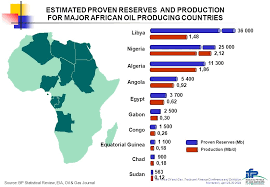
Make no mistake, Africa has a crucial and increasingly important role within OPEC, even given its relatively small production volumes and the departure of Angola
The importance of Africa to OPEC was evidenced at the Invest in African Energy event in Paris in May. OPEC Secretary General Haitham al-Ghais sent out a strong message around the crucial partnership that was backed up by a team of experts talking up the role of hydrocarbons in Africa’s long-term future. The conclusion is clear: Africa will likely rinse every last drop of oil from its continent for production and continue consuming when others become too squeamish because of climate goals.
Ghais did not mince his words. “OPEC is here today in Paris in full force because we are an integral part of Africa, and Africa is an integral part of OPEC.”
By 2045, the continent’s oil demand is expected to double to 8.2m b/d due to rising demand from the residential, commercial and agricultural sectors, while refining capacity is set to expand by 3.2m b/d, according to OPEC estimates.
“Whether it is industry investment, energy transitions, climate financing or energy poverty, OPEC and Africa are on the same team and fighting the same battle” Ghais, OPEC
The sectary general also said Africa “offers a vast horizon of undeveloped oil resources, which will be needed to meet future world energy needs. All sources of energy are going to be called upon to meet growing global primary energy demand, which is said to increase by 23% by 2045”.
Oil is seen representing the largest share of the energy mix through to 2045, when OPEC expects oil demand to grow to 116m b/d from just over 100m b/d currently.
OPEC blocs
When commentators talk of the crucial actors in OPEC and OPEC+, few look beyond either Saudi Arabia as de facto leader of OPEC or the OPEC+ co-heads of Saudi Arabia and Russia, while there is also clearly important alliances such as the founding members of Iran, Iraq, Kuwait, Saudi Arabia and Venezuela or the Gulf bloc of Saudi Arabia, the UAE and Kuwait. This feeds into the notions of historical significance and production volumes. Even though OPEC works with the mantra of unanimity, some members are clearly more equal than others, with not just output but spare capacity being a crucial factor, with Saudi Arabia and then the UAE having the largest amount of power to bring on and take off supply quickly.
Iraq has been a serially poor complier in terms of cutting production quotas, something that has been tolerated begrudgingly, while the same discussions around quotas and baselines were a keen reason for Angola departing the group at the start of the year.
However, what Africa falls short on in terms of overall production, it makes up for in terms of sheer membership numbers. Algeria, Congo-Brazzaville, Equatorial Guinea, Gabon, Libya and Nigeria mean that half of OPEC’s members are African, even if that equates to only around 15% in terms of crude output. Africa’s combined volume of around 4m b/d is just behind the output of Iraq, which is the second-biggest player behind Saudi Arabia. Add Angola back into the mix and Africa is easily OPEC’s number-two supplier. Meanwhile, Sudan and South Sudan form Africa’s OPEC+ contingent, giving the continent eight of the 22 members of the wider alliance.
Africa also has huge growth potential, with countries such as Namibia and Senegal among those to produce first oil this decade, and room for mature players such as Nigeria and Angola to get closer to former glories and for countries that often go under the radar, like Gabon, to continue pumping out crude at decent levels. There is also a keenness for Africa to prioritise industrialisation over decarbonisation and to bring greater efficiencies and clean-tech to the upstream process.
The dialogue initiatives between the African Refiners and Distributors Association, the African Petroleum Producers Organization, the African Union and OPEC highlights their growing importance, with the annual discussions now in their third year.
“We see the global economy at least doubling in size and emerging nations commanding the lion’s share of energy demand” Qahtani, OPEC
“Whether it is industry investment, energy transitions, climate financing or energy poverty, OPEC and Africa are on the same team and fighting the same battle,” Ghais said earlier this year, highlighting the unity. Indeed, Gabon holds the current OPEC presidency, having been handed the baton by Congo-Brazzaville.
OPEC’s research team underscored these messages in Paris. “We believe in the future of Africa and the South-South—we see almost all of global oil demand coming out of emerging markets,” said Ayed al-Qahtani, Director of the Research Division at OPEC. “We see the global economy at least doubling in size and emerging nations commanding the lion’s share of energy demand going forward.”
Africa sits on upwards of 120b bl of crude, and this can be extended to all commodities—including precious metals, gas and hydropower. “The issue of investment is significant and hinders the exploitation of these resources that could facilitate huge potential for economic growth,” Qahtani added.
‘Afripec’ may not be a term that exists right now, and some may feel there is less need since Angola departed. But the OPEC–Africa dynamic is likely to shape the group far more in the years ahead.
Source: Petroleum Economist




